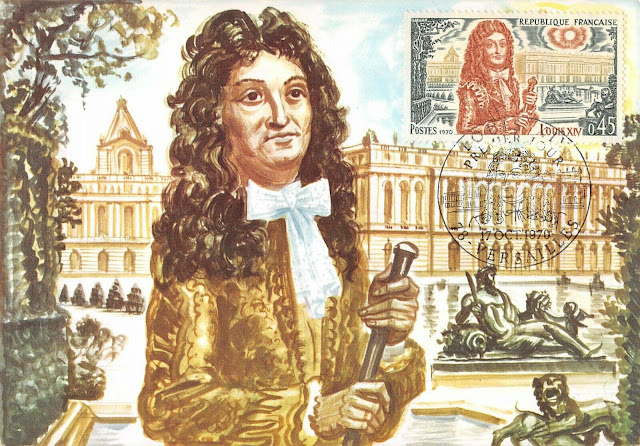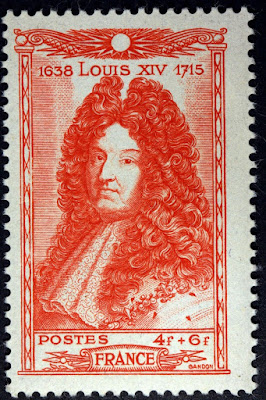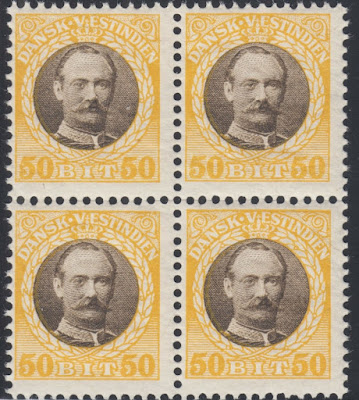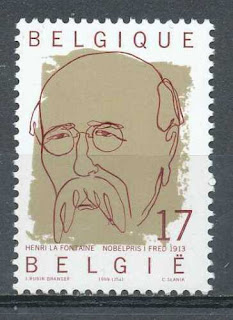1643 – Four-year-old Louis XIV becomes King of France upon the death of his father, Louis XIII.
Louis XIV (Louis Dieudonné; 5 September 1638 – 1 September 1715), known as Louis the Great (Louis le Grand) or the Sun King (le Roi Soleil), was King of France from 14 May 1643 until his death in 1715. His reign of 72 years and 110 days is the longest recorded of any monarch of a sovereign country in European history. In the age of absolutism in Europe, Louis XIV's France was a leader in the growing centralization of power.
Louis began his personal rule of France in 1661, after the death of his chief minister, the Italian Cardinal Mazarin. An adherent of the concept of the divine right of kings, Louis continued his predecessors' work of creating a centralized state governed from the capital. He sought to eliminate the remnants of feudalism persisting in parts of France and, by compelling many members of the nobility to inhabit his lavish Palace of Versailles, succeeded in pacifying the aristocracy, many members of which had participated in the Fronde rebellion during Louis' minority. By these means he became one of the most powerful French monarchs and consolidated a system of absolute monarchical rule in France that endured until the French Revolution.
Some France stamps and a maximum card depicting Louis XIV
1885 Born: Otto Klemperer, German composer and conductor (d. 1973)
Otto Nossan Klemperer (14 May 1885 – 6 July 1973) was a Jewish German-born conductor and composer, described as "the last of the few really great conductors of his generation."
Klemperer studied music first at the Hoch Conservatory in Frankfurt, and later at the Stern Conservatory in Berlin under James Kwast and Hans Pfitzner. He followed Kwast to three institutions and credited him with the whole basis of his musical development. In 1905, he met Gustav Mahler while conducting the off-stage brass at a performance of Mahler's Symphony No. 2, Resurrection. He also made a piano reduction of the second symphony. The two men became friends, and Klemperer became conductor at the German Opera in Prague in 1907 on Mahler's recommendation. Mahler wrote a short testimonial, recommending Klemperer, on a small card which Klemperer kept for the rest of his life. Later, in 1910, Klemperer assisted Mahler in the premiere of his Symphony No. 8, Symphony of a Thousand.
Klemperer went on to hold a number of positions, in Hamburg (1910–1912); in Barmen (1912–1913); the Strasbourg Opera (1914–1917); the Cologne Opera (1917–1924); and the Wiesbaden Opera House (1924–1927). From 1927 to 1931, he was conductor at the Kroll Opera in Berlin. In this post he enhanced his reputation as a champion of new music, playing a number of new works, including Janáček's From the House of the Dead, Schoenberg's Erwartung, Stravinsky's Oedipus rex, and Hindemith's Cardillac.
Klemperer is less well known as a composer, but like other famous conductors such as Furtwängler, Walter and Markevitch, he wrote a number of pieces, including six symphonies (only the first two were published), a Mass, nine string quartets, many lieder and the opera Das Ziel. He tried periodically to have his music performed, as he had hopes of being remembered as a composer as well as a conductor, but found little success. His works have generally fallen into neglect since his death, although commercial recordings of a few of his symphonic pieces have been issued. Four of his string quartets and a selection of piano pieces and songs have been recorded in two limited edition CDs.
Berlin stamps depicting Otto Klemperer
1912 Died: Frederick VIII of Denmark (b. 1843)
Frederick VIII (Christian Frederik Vilhelm Carl) (3 June 1843 – 14 May 1912) was King of Denmark from 1906 to 1912. Before his accession to the throne at age 62, he served as crown prince for over 42 years. During the long reign of his father, King Christian IX, he was largely excluded from influence and political power.
Frederick became king of Denmark as Frederick VIII upon Christian IX's death on 29 January 1906. He was 62 years old at the time and had been Crown Prince for 43 years. In many ways Frederick VIII was a liberal ruler who was much more favorable to the new parliamentarian system than his father had been. He was reform-minded and democratically inclined. However, because of his very late accession to the throne he had only six years as regent and he was weakened by ill health.
On his return journey from a trip to Nice, King Frederick made a short stop in Hamburg, staying at the Hotel Hamburger Hof. The evening of his arrival on 14 May 1912, Frederick (incognito) took a walk on the Jungfernstieg. While walking he became faint and collapsed on a park bench and died. He was discovered by a police officer who took him to a Hafen hospital where he was pronounced dead. His cause of death was announced as a paralysis-attack. He was interred with other members of the Danish royal family in Roskilde Cathedral near Copenhagen.
Stamps from the Danish West Indies depicting Frederick VIII of Denmark
1943 Died: Henri La Fontaine, Belgian lawyer and author, Nobel Prize laureate (b. 1854)
Henri La Fontaine (22 April 1854 – 14 May 1943), was a Belgian international lawyer and president of the International Peace Bureau. He received the Nobel Prize for Peace in 1913 because " he was the effective leader of the peace movement in Europe".
La Fontaine was born in Brussels on 22 April 1854 and studied law at the Free University of Brussels (now split into the Université libre de Bruxelles and the Vrije Universiteit Brussel). He was admitted to the bar in 1877 and established a reputation as an authority on international law. He and his sister Léonie La Fontaine were early advocates for women's rights and suffrage, founding in 1890 the Belgian League for the Rights of Women. In 1893, he became professor of international law at the Free University of Brussels and two years later was elected to the Belgian Senate as a member of the Socialist Party. He served as vice chairman of the Senate from 1919 to 1932.
La Fontaine took an early interest in the International Peace Bureau, founded in 1882, and was influential in the Bureau's efforts to bring about The Hague Peace Conferences of 1899 and 1907. He served as president of the Bureau from 1907 until his death in 1943. World War I convinced La Fontaine that the world would establish an international court when peace returned. He proposed a number of possible members, including Joseph Hodges Choate, Elihu Root, Charles William Eliot, and Andrew Dickson White. La Fontaine also promoted the idea of unification of the world's pacifist organizations.
He was a member of the Belgian delegation to the Paris Peace Conference in 1919 and to the League of Nations Assembly (1920–21). In other efforts to foster world peace, he founded the Centre Intellectuel Mondial (later merged into the League of Nations Institute for Intellectual Co-operation) and proposed such organizations as a world school and university, and a world parliament. In 1907, with Paul Otlet, he founded the Union of International Associations. He also is the co-founder of Institut International de Bibliographie (which later became the International Federation for Information and Documentation, FID) along with Paul Otlet. It was in this role that he and Otlet attended the World Congress of Universal Documentation in 1937.
Henri La Fontaine was a freemason, and a member of the lodge Les Amis Philanthropes in Brussels. He died on 14 May 1943 in Brussels.
Stamp from Belgium depicting Henri La Fontaine








No comments:
Post a Comment